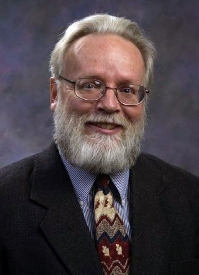Community Development: Today's Realities Provide for Sustainability Opportunities
April 22, 2013

Timothy Collins, IIRA Assistant Director
[Download Print-Quality Image]
Rural Illinois Perspectives
by Timothy Collins, Illinois Institute for Rural Affairs Assistant Director
MACOMB, IL -- Rural community development is in a quandary. Mix problems of pollution, weakening infrastructure and inadequate transportation with shrinking government, shifting economies and global warming—it's enough to run you ragged.
Federal, state and local budget reductions need not eliminate hopes for community development. They suggest the need for communities to seek out new, sustainable opportunities. This is the landscape where many community developers now negotiate.
Floyd Norris, writing for the New York Times, found that government employment in February 2013 was lower than it had been a year earlier, the 31st straight month of such decline. According to the National Review, federal employment has shrunk slightly. State and local governments have seen fairly sharp falls in employment. According to the Bureau of Economic Analysis, there were about 19.71 million full and part-time state and local workers in 2009. By 2011, that number has fallen to 19.29 million, a decline of about 2.3 percent in two years. Impacts have been variable nationwide, but have included cutbacks in medical services, schools and road maintenance.
Under these conditions, a more pragmatic and ethical approach to rural community development is needed, more in the spirit of E.F. Schumacher's "Small is Beautiful" philosophy/economics of the 1970s. Today's realities suggest the urgent need to alter traditional community development practice by putting ecological sustainability at the core. This approach to rural community development offers ways for places to build on their human assets to improve the local ecology and, perhaps, provide an environmental cushion from broader factors that are out of their control.
We need enlightened community developers to revamp the field's rich traditions. They need to create grassroots support for self-interested green communities capable of maintaining an enduring good quality of life in troubling times of growing isolation, real and perceived.
Green community self-interest translates into putting sustainability first. As an economic, political and social approach to local development, sustainability puts human communities into their natural ecology, working with and for nature by conserving, nurturing and replenishing the ecological setting, the larger community—soil, water, air, plants and animals. The role of businesses in green communities must be to care for the house that nature has provided, to use it carefully and wisely, always with an eye on the future.
What does this mean? In theory, envirocentric rural development offers an ethical anchor based on principles of social justice, community security and health, all resting on high environmental quality. In practice, a new paradigm for community development is complicated; it requires more than merely setting up a group of people who want to bring about a better quality of life. It demands a long-range vision that carefully considers environmental impacts and opportunities to improve the ecology.
If you'd like to read more about this approach to rural community development, please see my essay "Deep Development as Government Shrinks," in the Daily Yonder, www.dailyyonder.com/developing-governments-shrink/2013/03/20/5727.
For more information, contact Timothy Collins at (800) 526-9943 or via email at T-Collins@wiu.edu.
Western Illinois University is an Affirmative Action, Equal Opportunity institution. For more information about the Illinois Institute for Rural Affairs, see www.iira.org.
Posted By: University Communications (U-Communications@wiu.edu)
Office of University Communications & Marketing

Connect with us: